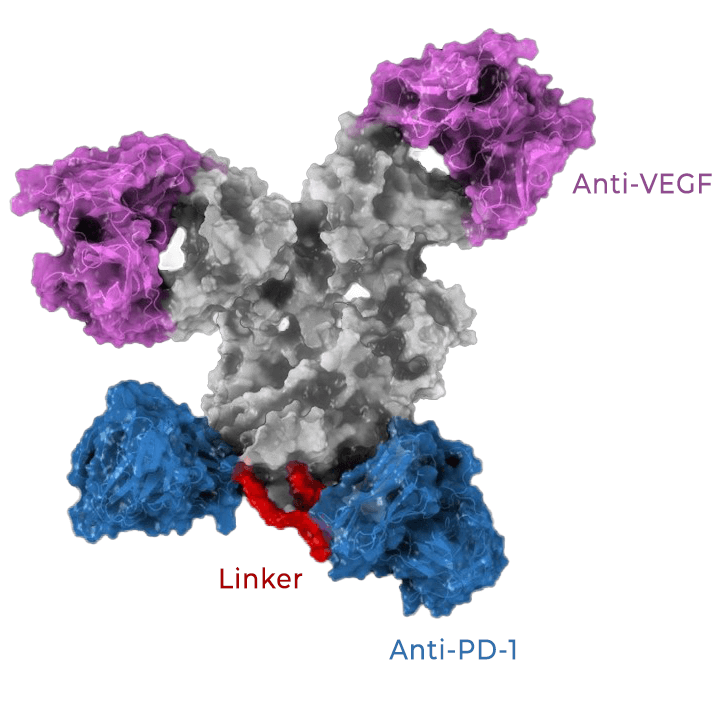PD-1/VEGF
Potential best-in-class bispecific antibody for Breakthrough immunotherapy
Why targeting PD-1 and VEGF?
Both PD-1 and VEGF are well established targets for cancer immunotherapies. However, only a small subset of cancer patients respond to current PD-1 therapies, and many patients do not tolerate the adverse events caused by VEGF inhibition.
Current limitations of PD-1 and VEGF therapies
PD-1/PD-L1 inhibitors have been established as the standard of care in various cancer types. The landscape of the overall PD-1/PD-L1 is still expanding 10 years after the first approval in this field. However, only a small portion of the cancer patients respond well to the PD-1/PD-L1 therapies. In addition, as the therapies move to earlier lines of treatment, more patients experience relapsed or recurrent diseases.1 One common combination is with anti-angiogenesis agents such as bevacizumab due to their synergistic effect in the tumor microenvironment. However, many patients do not tolerate the severe adverse events caused by angiogenesis inhibition, which limits the development of such combinations.
1. Front Immunol. 2024 Apr 10;15:1383456
Advantage of AI-081
Potentially the best-in-class PD-1/VEGF bispecific antibody as the immunotherapy for the future
By targeting PD-1 and VEGF, AI-081 presents an effective therapeutic strategy for multiple tumor types with unique benefits. As a single therapeutic agent with multiple targets, AI-081 showed strong cooperative interactions that lead to enrichment of the bispecific antibody in tumor microenvironment (TME). As a result, the benefit of blocking both targets is enhanced, and the toxicities decrease due to reduction in non-selective angiogenesis inhibition.
AI-081 bears a head-and-tail design, which is more effective to form interactions with both PD-1 and VEGF.

In molecular and cell-based assays, AI-081 consistently shows superior performance over other bispecific antibodies targeting PD-1 and VEGF. In addition, the higher efficacy is also translated into a greater anti-tumor activity in the animal models.
AI-081 is under development in a Phase 1 trial in cancer patients in the US.